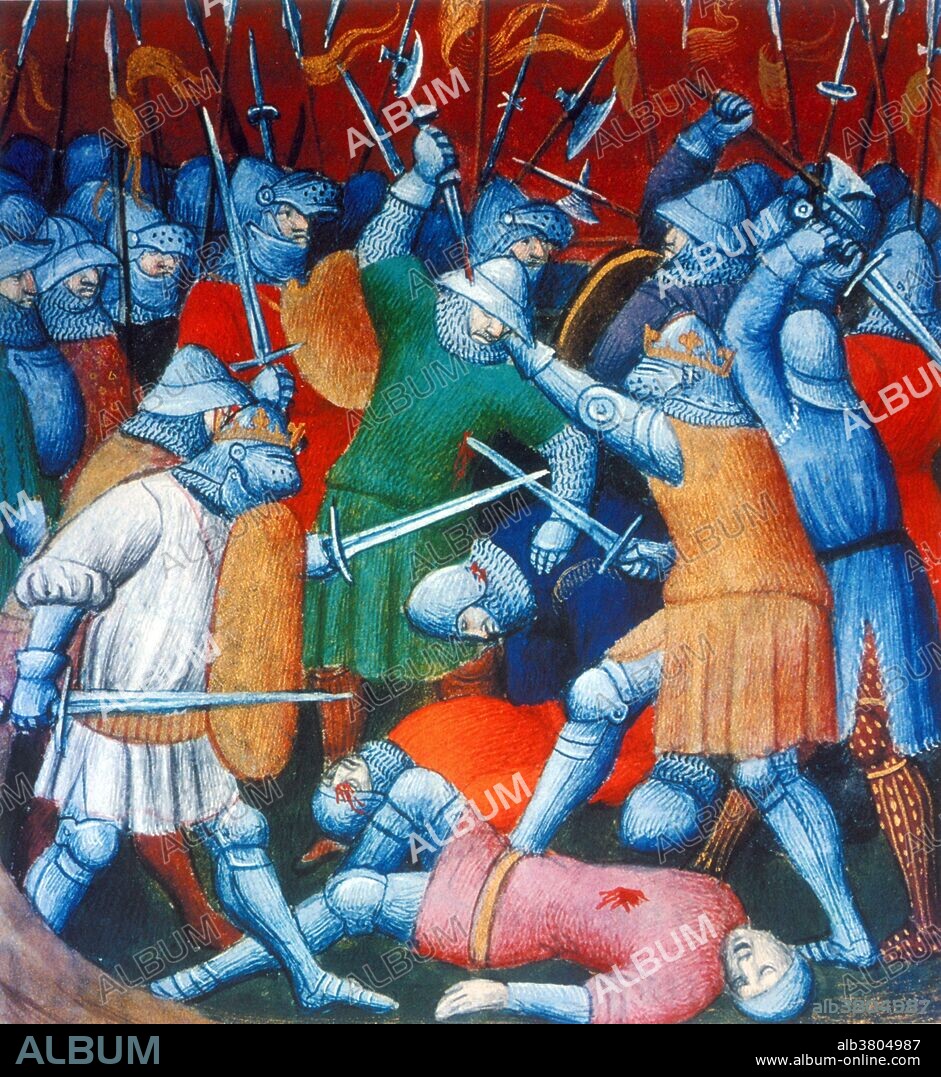alb3804987
Fifth Crusade, 1213-21

|
Añadir a otro lightbox |
|
Añadir a otro lightbox |



¿Ya tienes cuenta? Iniciar sesión
¿No tienes cuenta? Regístrate
Compra esta imagen

Título:
Fifth Crusade, 1213-21
Descripción:
Traducción automática: La Quinta Cruzada (1213-21) fue un intento de los europeos occidentales de recuperar Jerusalén y el resto de Tierra Santa conquistando primero el poderoso estado ayubí en Egipto. El Papa Inocencio III y su sucesor, el Papa Honorio III, organizaron ejércitos cruzados liderados por el rey Andrés II de Hungría y Leopoldo VI, duque de Austria, y un ataque contra Jerusalén finalmente dejó la ciudad en manos musulmanas. Más tarde, en 1218, un ejército alemán liderado por Oliverio de Colonia y un ejército mixto de soldados holandeses, flamencos y frisones liderados por Guillermo I, Conde de Holanda, se unieron a la cruzada. Para atacar Damieta en Egipto, se aliaron en Anatolia con el sultanato selyúcida de Roma, que atacó a los ayubíes en Siria en un intento de liberar a los cruzados de luchar en dos frentes. Después de ocupar el puerto de Damietta, los cruzados marcharon hacia el sur, hacia El Cairo, en julio de 1221, pero fueron rechazados después de que sus menguantes suministros los obligaron a retirarse. Un ataque nocturno del sultán Al-Kamil provocó un gran número de pérdidas de los cruzados y, finalmente, la rendición del ejército. Al-Kamil acordó un acuerdo de paz de ocho años con Europa
The Fifth Crusade (1213-21) was an attempt by Western Europeans to reacquire Jerusalem and the rest of the Holy Land by first conquering the powerful Ayyubid state in Egypt. Pope Innocent III and his successor Pope Honorius III organized crusading armies led by King Andrew II of Hungary and Leopold VI, Duke of Austria, and an attack against Jerusalem ultimately left the city in Muslim hands. Later in 1218, a German army led by Oliver of Cologne, and a mixed army of Dutch, Flemish and Frisian soldiers led by William I, Count of Holland joined the crusade. In order to attack Damietta in Egypt, they allied in Anatolia with the Seljuk Sultanate of Rûm which attacked the Ayyubids in Syria in an attempt to free the Crusaders from fighting on two fronts. After occupying the port of Damietta, the Crusaders marched south towards Cairo in July 1221, but were turned back after their dwindling supplies led to a forced retreat. A nighttime attack by Sultan Al-Kamil resulted in a great number of crusader losses, and eventually in the surrender of the army. Al-Kamil agreed to an eight-year peace agreement with Europe.
Crédito:
Album / NYPL/Science Source
Autorizaciones:
Modelo: No - Propiedad: No
¿Preguntas relacionadas con los derechos?
¿Preguntas relacionadas con los derechos?
Tamaño imagen:
3585 x 3900 px | 40.0 MB
Tamaño impresión:
30.4 x 33.0 cm | 11.9 x 13.0 in (300 dpi)
Palabras clave:
ACONTECIMIENTO • ARMA • ARMAS • ARTE • ASEDIO • CABALLERESCO • CABALLERIA • CABALLERO • CAMPO DE BATALLA • COMBATE • CONFLICTO BELICO • CRUZADA QUINTA • CRUZADO • DIBUJO • EDAD MEDIA • ESPADAS • FAMOSA • FAMOSO • GENTLEMAN • GUERRA SANTA • GUERRA • HISTORIA • HISTORICO • ILUSTRACION • IMPORTANTE • JINETE • LUCHA • LUCHANDO • MEDIEVAL • OBRA DE ARTE • QUINTA CRUZADA • S. XIII • SIGLO XIII • WAR • WEAPON
 Pinterest
Pinterest Twitter
Twitter Facebook
Facebook Copiar enlace
Copiar enlace Email
Email
